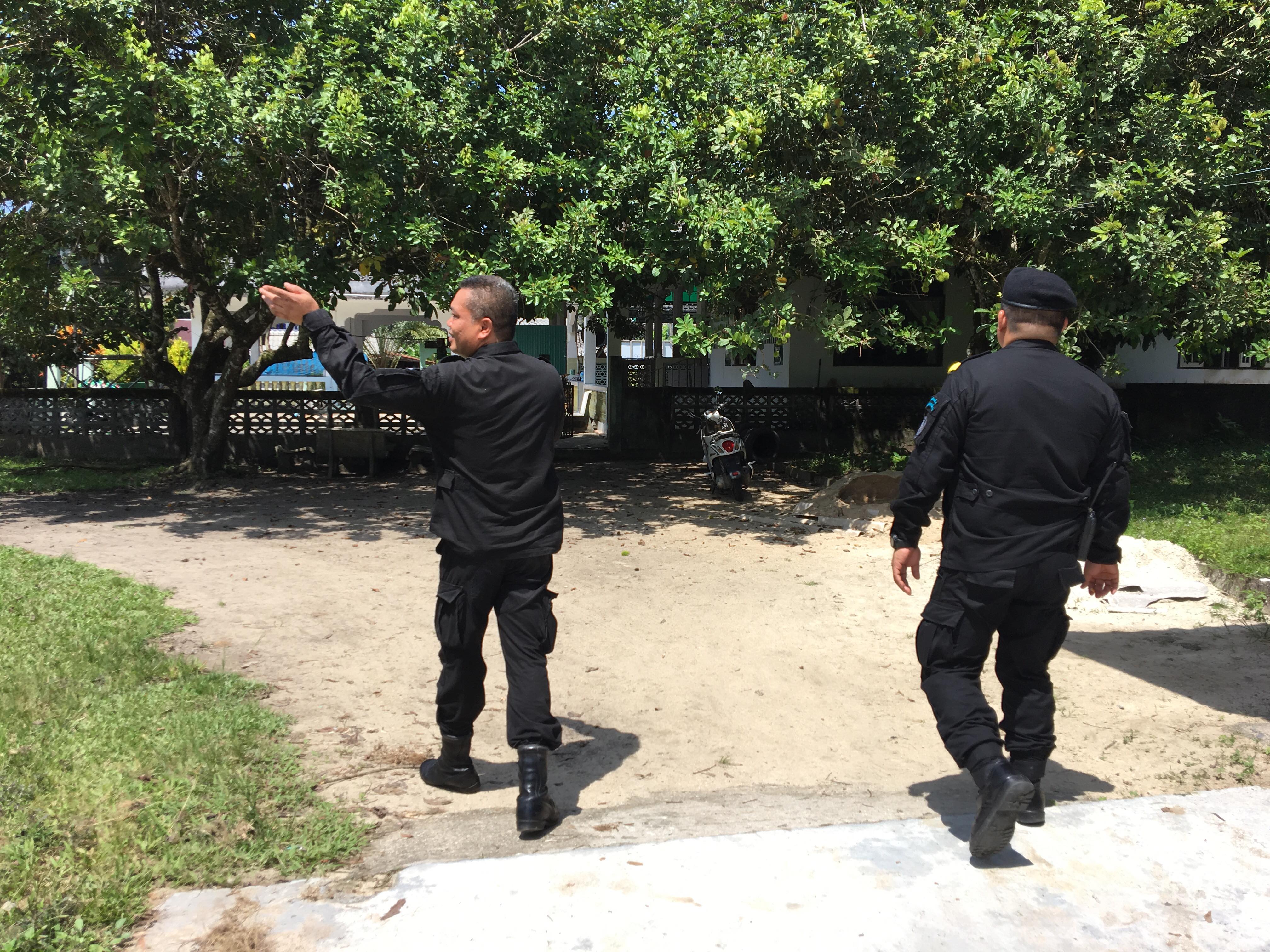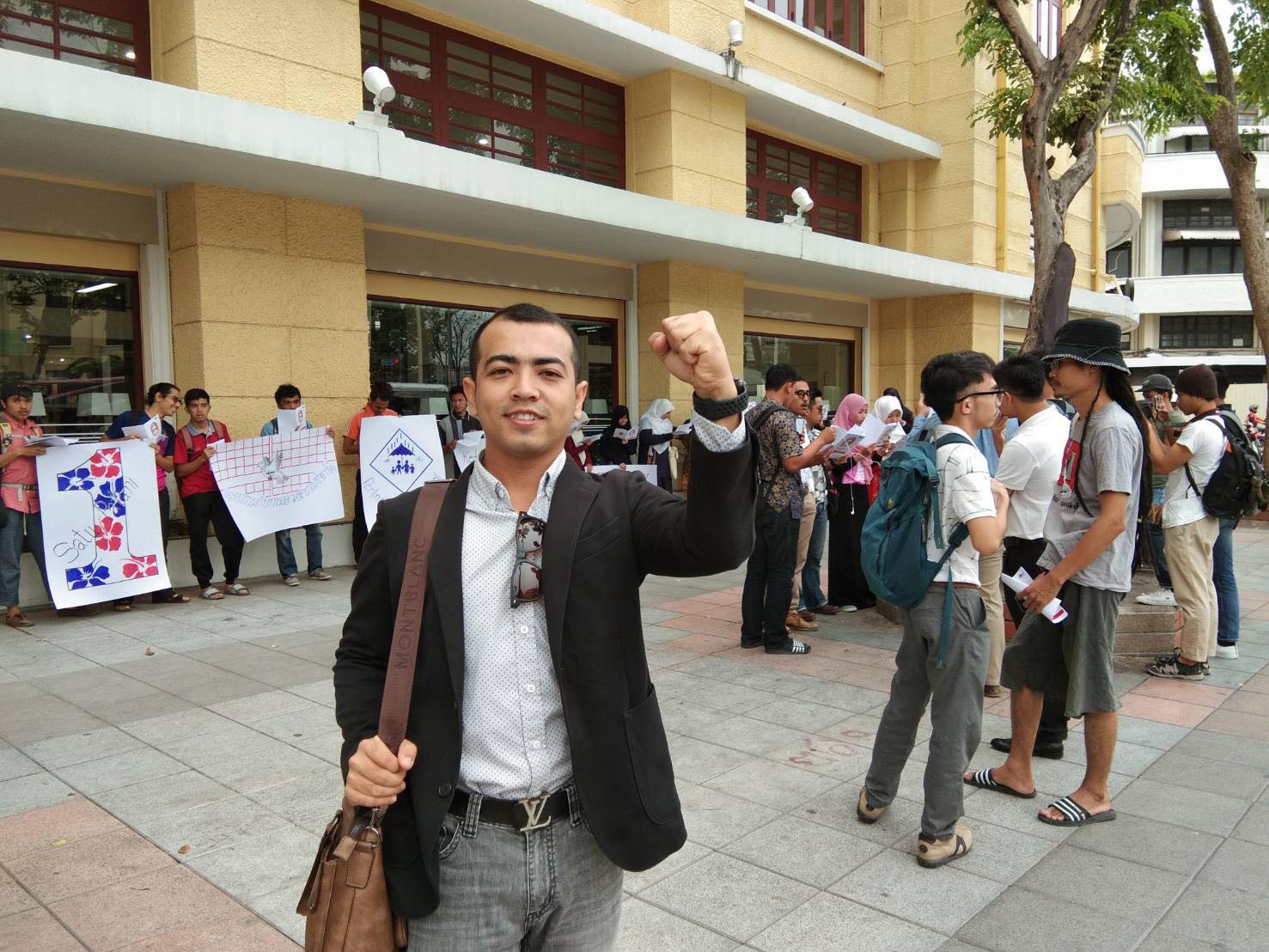Media coverage on the conflict region in southern Thailand, historically referred to as Patani1, reports on acts of violence such as bombings and shootings which are assumed to be carried out by separatist groups from the Patani Malay population despite no one ever officially taking responsibility for the violence. The media in general however, has shown less interest in reporting on the day to day lives of people living in one of the most militarized regions in Asia which has been under martial law for the past 14 years.
To be fair, this is not an easy task for journalists working in a country where the military has always held so much political power and is currently controlled by a military junta. On top of this, it is not easy to find locals living in the conflict zone who are willing to speak out. Most local people are simply trying to avoid the dangers of living in a region where sporadic violent attacks can happen even in market places and schools. To add to this climate of fear, the region is closely monitored by a military force which is protected by impunity laws so, despite hundreds of recorded extrajudicial killings2, no military officials have ever been prosecuted.
Arfan Wattana3 is an exception to the rule of keeping your mouth shut. As a student, he was the director of advocacy for PerMAS (The Federation of Patani Students and Youth) and he has remained a vocal critic of Thailand’s assimilation policies in Patani. He also openly expresses his self-identity as a Patani Malay and advocates Patani’s right to self determination.
At 11.30am on Thursday 10th May, between 20 and 30 armed police officers and military rangers stood outside Arfan’s house. Arfan was not home. In fact, no one was home. Arfan, who is 25 years old, was away travelling and his parents and younger sister were in Malaysia. Arfan’s village is in the district of Sungai Padi in Narathiwat which is close to the international border between Thailand and Malaysia. Only Arfan’s younger brother, who is 23 years old, was nearby when the police and military arrived at his house. A neighbour ringed Arfan’s brother and told him the police wanted to enter the house so the brother went straight home and called Arfan.
Arfan is used to the police and military searching his house. He remembers the raids at his home began when he was 12 years old which was when the conflict in Patani again flared up in 2004. Armed liberation movements from the Patani Malay population have been fighting for independence from Thailand since 1960, however the intensity of fighting remained low between the mid 1980s and late 1990s. Arfan remembers one night when he was sleeping next to his younger brother and grandmother. At 1am, armed military personnel kicked down the back door of the house and entered his home. They were looking for one of his uncles who the military said was a wanted man. The military came almost every week looking for Arfan’s uncle at that time.
Since 2007, Arfan’s house has been searched 10 times by the police or military supposedly looking for Arfan’s uncle who fled to Malaysia long ago. Instead, Arfan and another uncle of his, Artef Sohko - a well know activist and was the first Patani Malay to be elected the president of the Student Federation of Thailand - are more likely to have been the real interest of such visits in recent times by the police and military. As Arfan got older he followed the footsteps of Artef becoming involved in student activism calling for respecting the human rights of the local people and Patani’s right to self determination.
When Arfan’s brother arrived home, the police told him that they wanted to search the house, without giving any reason. Arfan was on the phone to his brother while the brother was talking to the police. Arfan told his brother not to give the police permission to enter their home. Arfan said that it was his family’s right that the police should hand over a document which shows the police have a warrant to enter his house. “This is martial law. We don’t need to have documents” was the police officer’s response. The conflict region, which makes up what is believed to be the boundary of the former Malay kingdom of Patani before it was colonized by Siam, is governed by Martial Law which is controlled by a political arm of Thailand’s military called the Internal Security Operations Command (ISOC).
Two military personnel visit Arfan Wattana at his house
Like all the inhabitants living in the Patani region, Arfan is essentially powerless to protect his rights in the face of Martial Law. His only response to the police officer was “fine, if you don’t want to respect me, I don’t want to respect you”. One of the police officers told Arfan’s brother “you don’t need to struggle to fight with us because you will not win because the power is in our hands”.
The police did not want to talk to Arfan anymore. They made Arfan’s brother end the call and confiscated his phone. An officer took the phone away and searched the phone while sat in an armoured military vehicle. The police again said to the brother that they wanted to search the house, but again without giving a reason. The brother agreed but said he only wanted two officers to enter. First, four tried to enter. Then Arfan’s brother protested and only two went into the house. The police went into Arfan’s bedroom and found a notebook with English handwriting in it. They didn’t understand English so they said they were confiscating it so it could be translated to see what it said. The notebook contained Arfan’s notes from a field trip he made to the southern Philippines in Mindanao about the peace process between separatist groups from the Moro population and the Philippines’ government.
When the call ended, Arfan did not know what was going on because he could not get in touch with his brother. He posted on Facebook that police had come to search his house. He thought that the police were only searching his house, but some of his friends messaged him that the police had searched their houses too. In fact, a team of between 60 and 100 police officers and military rangers, which are in charge of the sub-district where Arfan’s village is located, had searched almost every house in Arfan’s village. They had done the same thing in another four nearby villages. The mass searches had begun at 4am that morning. Arfan’s village is located in what was labelled as a red zone 10 years ago when the violence was at its peak. There is a wanted person in almost every household in Arfan’s village, according to Arfan.
Arfan started collecting information from different villagers he knew whose houses had been searched. Arfan asked if anyone had taken pictures of the military or police officers searching their houses. No one had dared to take pictures. They were too scared.
Activists in Patani have been arrested before simply for taking pictures of the military searching and arresting people. Arfan tries to explain the villagers’ situation. “Try to imagine early morning, you see a lot of military come to your village. How do you feel?” They come in big armoured vehicles with a lot of weapons.”
The police only took Arfan’s notebook and they gave back the phone to Arfan’s brother once they had searched it. Arfan found out that the police had confiscated six phones from another house and had not given them back. He also heard from villagers from a neighbouring village that young men had been rounded up and taken to a local school for interrogating. The police also took samples of their DNA. A woman from a neighbouring village told Arfan how scared she had been because police officers had searched her house while she was out and her child was home asleep.
Arfan felt angry but not because the military had come to his house. “Sometimes they come to see me and sometimes to see Artef. That’s fine.” Everytime Arfan comes home from being away, the local rangers come to see him. Arfan says he welcomes them if they come with an honest intention like a normal person and ask about his life and what he is doing right now or about the political situation for example. “But if they come not for visiting but just checking then of course I don’t welcome them. This time they came without respect”.
Arfan wanted to know the reason for the mass searches of his village. He called contacts he had in ISOC. The first officer said that the searches were related to drugs. Arfan did not believe her so he called another ISOC officer. This officer said that it was related to recent bomb attacks in neighbouring district Sungai Kolok. Thirteen people had been injured including a three year old girl in three bomb attacks in the border town and according to the police
six people were involved in the attack.
He tried to contact the police as well but they did not answer his calls. He believes that at the very least, the villagers should have been informed why they wanted to search their houses. Arfan also sees such actions by the police and military as counterproductive towards resolving the conflict in Patani. “My area is one of the [proposed] safety zones agreed between MARA Patani4 and the Thai government. When they behave like this, it breaks the idea of a safety zone”.
“I know a lot of people in high positions in the military. We’ve been working together to try and find a solution [to the conflict] so why don’t they respect us?”. Arfan said that there are some people higher up in the military that believe that even though the region is governed by Martial Law, the people need to be respected. “We’ve talked about this several times when we’ve met at a coffee shop or had lunch together or met at forums.”
“Don’t think that we are uneducated people. Now there are many young people who left their villages to learn about political science and the law in order to protect themselves to stop things like this from happening”.
Arfan Wattana campaigns in Bangkok on 13th February 2018
About the author: Adam John is a British national who lives in Sweden and is a supporter of non-violent political activism in Patani.
Endnote:
1. I use the term ‘Patani’ since it recognises the historic cultural identity of the region. This is not to be confused with ‘Pattani’ - a province which makes up only part of the region.
2. Duay Jai and HAP. 2018. Monitoring and fact finding situation in Deep South Thailand report 2016-2017.
3. Arfan Wattana is currently on the Steering Committee for Jurisprudence and International Mechanism for an organisation called The Patani. This article is based on an interview between Arfan and the author conducted on Friday 11th May 2018.
4. Mara Patani is an umbrella group representing several Patani liberation movements. It has been involved in peace negotiations with the military junta since 2014.


